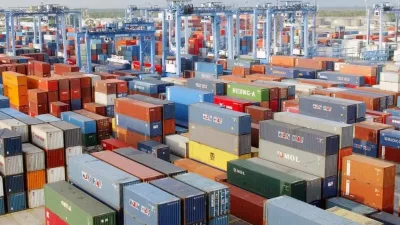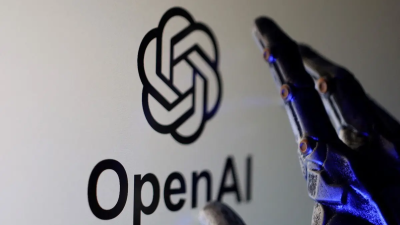
As President Donald Trump completed high-level meetings in Saudi Arabia and Qatar, the global media spotlight rightly focused on energy security and arms sales.
But an arguably more consequential development took place in the realm of advanced technology—a domain increasingly defining the future of global power.
The Trump administration’s cancellation of the so-called “AI diffusion rule” marks not only a shift in American tech policy but opens a significant strategic window for ASEAN and other middle-power economies.
The AI diffusion rule, finalized during the final weeks of the Biden presidency, was a values-driven framework designed to tier countries based on political alignment and institutional governance.
Tier 1 included the “like-minded” allies—mostly NATO members, Five Eyes partners, and semiconductor powerhouses like Japan, South Korea, and Taiwan.
ASEAN states, along with India, Israel, Saudi Arabia, and the UAE, were relegated to Tier 2—neither adversaries nor trusted enough to warrant full access to top-tier AI chips.
This classification would have restricted the flow of Nvidia’s cutting-edge AI hardware—critical to powering machine learning, cloud services, and national innovation strategies—to a wide swath of emerging economies.
Indeed, Nvidia’s CEO Jensen Huang, who was traveling with President Trump in Saudi Arabia, warned that the rule would stifle innovation and fracture global AI cooperation.
Hours after the rule was scrapped, Huang announced a major deal: over 18,000 high-end Nvidia AI chips would be sold to Saudi Arabia’s Humain—precisely the kind of agreement that Biden’s rule would have inhibited.
Trump’s rollback is more than deregulation—it’s a recalibration of American statecraft.
Whereas Biden’s team pursued a moral binary of “rule-bound versus opportunistic,” Trump favors a fluid, transactional approach.
His undersecretary of commerce, Jeffrey Kessler, has promised an “inclusive strategy” for AI export policy, one focused on enabling access for “trusted foreign countries” while still containing true adversaries like North Korea, Iran, and Russia.
For ASEAN, this policy reset is a strategic opportunity.
First, it affirms that countries like Malaysia, Singapore, Vietnam, and Thailand will not be boxed out of the AI revolution.
ASEAN economies are investing heavily in smart manufacturing, digital finance, and AI-driven public services. Access to advanced chips is the lifeblood of these transitions.
Trump’s removal of the export curb allows ASEAN to position itself not just as a passive consumer of AI, but as an active innovator and producer.
Trump’s decision reflects a more flexible vision of American primacy—one that prizes agility over orthodoxy, and opportunity over exclusion.
Second, the rollback underscores Trump’s prioritization of deal-making over rigid ideological blocs.
While Biden’s rule framed AI exports through a democracy-versus-autocracy lens, Trump prefers to assess partners based on their transactional value and reliability.
This logic aligns well with ASEAN’s own approach to multilateralism—open, inclusive, and pragmatic rather than values-imposing.
Third, the cancellation sends a clear signal to regional powerhouses like Indonesia and Vietnam, whose digital economies are surging.
Rather than facing second-tier treatment, these nations can now deepen bilateral tech cooperation with U.S. firms, universities, and labs without being hamstrung by bureaucratic hurdles.
ASEAN’s ongoing partnerships with Microsoft, Google, and Amazon Web Services stand to benefit tremendously.
But this opening also comes with responsibilities.
ASEAN governments must demonstrate technological maturity and data governance accountability.
As AI chips flow more freely, ASEAN must avoid becoming a transshipment point for third parties seeking to bypass US export rules.
In this regard, national AI strategies—such as Singapore’s Model AI Governance Framework or Malaysia’s National AI Roadmap—can serve as confidence-building measures to reassure Washington and Silicon Valley alike.
Moreover, ASEAN must ensure that its AI transformation serves inclusive development.
As the Biden-era rule fell in part due to fears of exacerbating a digital divide, ASEAN should now turn this reversal into a regional digital acceleration pact.
Collaboration with Gulf countries and East Asian economies on AI education, ethical standards, and infrastructure development could redefine the Global South’s role in shaping AI’s future.
President Trump’s decision, at first glance, may appear as another rollback of Biden-era globalism. But in the details, it reflects a more flexible vision of American primacy—one that prizes agility over orthodoxy, and opportunity over exclusion.
ASEAN, long navigating the fault lines of major power rivalry, is well placed to benefit from this recalibration.
This is not the end of AI governance debates. A new rule will be drafted, one likely shaped more by market realities than democratic ideals.
But until then, ASEAN has a window—brief, perhaps, but momentous—to assert its role in the future of artificial intelligence.
It should do so boldly.
(Prof Dr Phar Kim Beng is Expert Committee Member of the Centre of Regional Strategic Studies, CROSS, and Professor of ASEAN Studies at ISTAC-IIUM.)
ADVERTISEMENT
ADVERTISEMENT








































